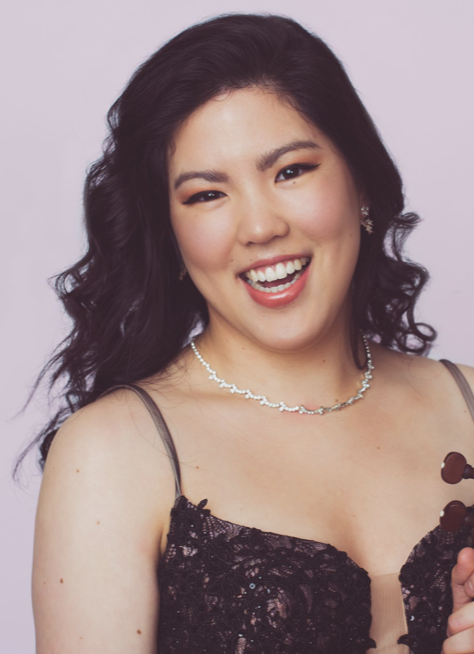|
Symphony
FROM THE NEW WORLD TO THE OLD WORLD
by Peter Lert
Saturday, June 14, 2025
Chamber
MC2 DUO RECITAL CLOSES 222'S SEASON
by Terry McNeill
Saturday, June 14, 2025
Choral and Vocal
CANTIAMO SONOMA'S LUSCIOUS A CAPELLA SINGING IN SEASON ENDING CONCERT
by Pamela Hicks Gailey
Sunday, June 8, 2025
Symphony
SRS SEASON ENDS WITH RESOUNDING TA-TA-TA-BANG
by Terry McNeill
Sunday, June 1, 2025
Symphony
YOUTHFUL VIRTUOSITY ON DISPLAY AT USO'S MAY CONCERTS
by Peter Lert
Saturday, May 17, 2025
Symphony
MYSTICAL PLANETS AND LIVELY GERSHWIN ORTIZ AT FINAL SRS CONCERT
by Peter Lert
Sunday, May 4, 2025
Symphony
VSO'S CONCERT MUSIC OF TIME, MUSIC OF PLACE
by Peter Lert
Sunday, April 27, 2025
VOCAL ELEGANCE AND FIRE AT THE 222'S RECITAL APRIL 26
by Pamela Hicks Gailey
Saturday, April 26, 2025
CANTIAMO SONOMA SINGS AN INSPIRED GOOD FRIDAY MOZART REQUIEM CONCERT
by Pamela Hicks Gailey
Friday, April 18, 2025
DRAMATIC SHOSTAKOVICH SYMPHONY CLOSES PHILHARMONIC'S 25TH SEASON
by Terry McNeill
Sunday, April 13, 2025
|
 |
 Violinist Rachell Ellen Wong |
SURPRISING IVES TRIO AND SONGS AT VMMF'S HANNA CENTER
by Terry McNeill
Sunday, July 24, 2022
In a recent Valley of the Moon concert review comments were made about repertoire that reflected summer at a festival – lighter weight music, much informality. The July 24 concert in the Hanna Boys Center appeared on paper to have muscle, and featured the music of Ives. Remarkably, though the idiosyncratic composer’s Piano Trio and some songs were performed, the musical impact was seldom weighty. Ives, not dense or unfathomable?
Coming at the end of the first half, the Trio from 1911 received a passionate interpretation from the Delphi Trio – pianist Allegra Chapman, Liana Bérubé (violin) and cellist Tanya Tomkins.
Ms. Bérubé’s overly extended introductory remarks seemed designed to prepare the audience of 110 for chaotic dissonance and startling polyrhythms. However, the reception over the 23-minute performance was accepting and almost mundane, the wash of almost 25 popular songs of the time imbedded into each of the three movements.
The inclusion of familiar songs of the time is common in Ives, but sometimes in a thick-textured work like the Concord Piano Sonata one can discover just one, and I recall it was “Columbia The Gem of the Ocean” in the middle of that knotty piece composed at the same time as the Trio. Here in the Trio the tunes came and went with harmonies stacked upon one another, especially in the Scherzo movement with the Delphi producing driving rhythms. The tempo was fast but less than the indicated Presto, the phrases jumpy and themes in counterpoint wandered about. Ms. Bérubé artistically altered her pitch, sliding into notes with minimal vibrato.
Ms. Chapman’s piano line never covered her colleagues, and with the music embracing the song “At The River” it had a pop character and Ms. Tomkins soldiered on, her athletic bowing not always audible. Instrumental interplay in the concluding Moderato was a highlight with themes starting and then vanishing. The movement’s ending was played broadly with a felling of sadness, and perhaps Mahlerian resignation.
Tenor Kyle Stegall sang seven songs with pianist Eric Zivian, first three from Ives and Gottschalk’s O Loving Heart. The Gottschalk was lyrical and had much Schumann in it, and Mr. Stegall gave a masterly performance, his phrases nearly running out of air, and ended powerfully. The Ives (Evening, When Stars are in the Quiet Skies and Housatonic at Stockbridge) were all over the map, the last the most intriguing with the piano and voice lines often at odds, and Mr. Zivian making pianistic sounds like dripping water and sporadically covering the tenor’s voice. Debussy’s muse was present.
The early 1891 When Stars… was sung romantically, and could have come from the pen of Amy Beach. That composer appeared in her song Chanson d’amour, usually performed by a soprano, but here Mr. Stegall lavished a surging momentum in every phrase, with Tanya Tomkins playing a cello obligato. The potent ending elicited loud applause. Grant Still’s Poeme from 1949 and Burleigh’s Till I Wake (1915) completed the vocal works. Still’s long line piece was sung with palpable shimmering notes, and the Burleigh found the tenor with an edge to his voice, almost a calculated braying, with a lovely held final notes and a soft postlude from Mr. Zivian.
In an odd program choice Rachell Ellen Wong and Mr. Zivian played the second movement of Ravel’s Violin Sonata, the one with the pizzicato chords opening, pitch slides and a boisterous character and bass accents in the piano line that turned at times clangorous. Ms. Wong played from score and traded the recurrent “blues” theme with Mr. Zivian with a recurrent jazz phrase “swing.” Difficult to bring off, but here done to considerable effect.
Concluding the program was Still’s Suite for Violin and Piano, in three movements and composed in 1943, with Ms. Wong joined by pianist Audrey Vardanega. The long introduction in the African Dancer opening was played a la Gershwin, the repetitive motives finally turning into a toccata. A lieder feeling characterized the Mother and Child movement, the music looking back towards Mrs. Beach and perhaps forward to Korngold. Ms. Wong’s playing was idiomatic, as well as her dancing spiccato bow slashing into the Gamin finale that had a requisite Tzigane flavor. Ms. Vardanega was with her every step in this demanding work, maybe a North Coast premiere performance.
Audience response to the Suite’s conclusion was immediate and cheerful. No encore was offered. The always enjoyable reception with the musicians on the Hall’s patio ended the day.
|

